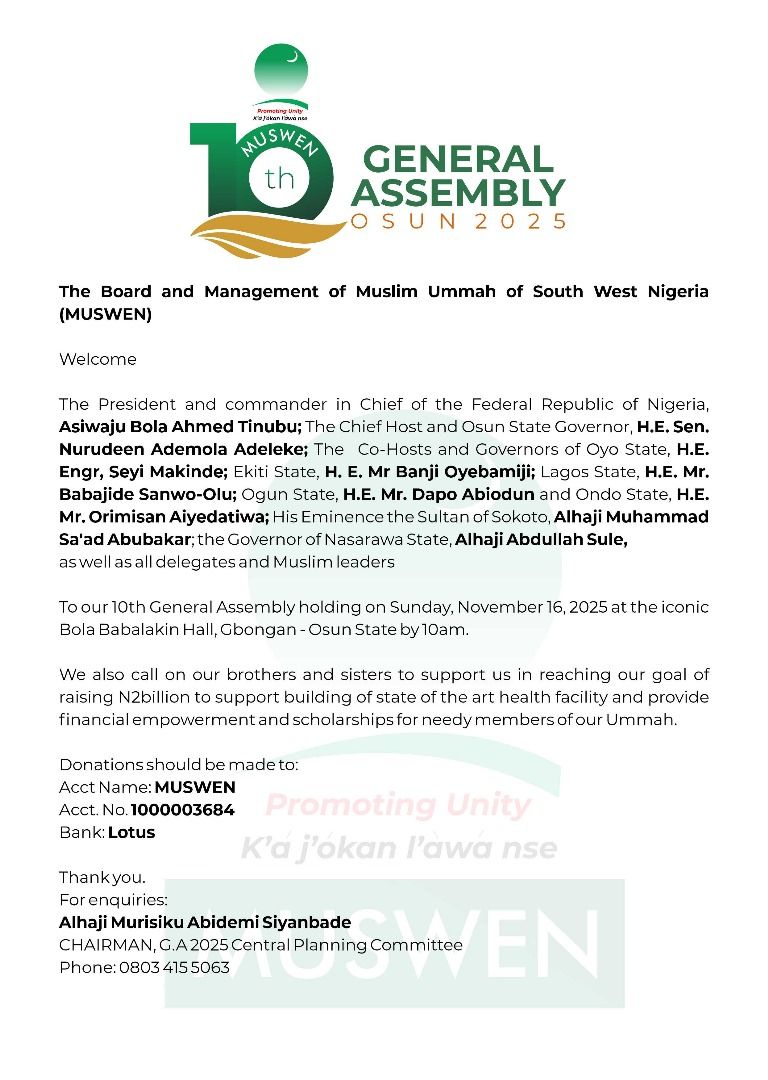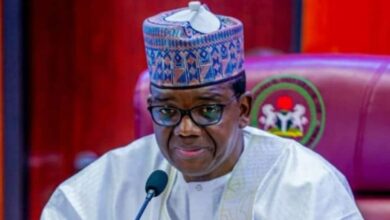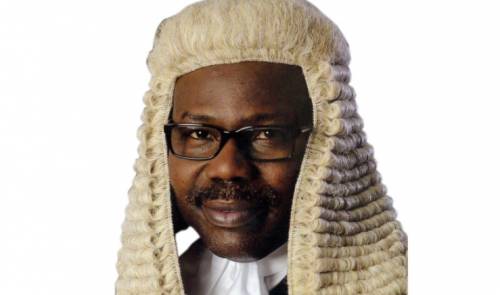Buhari rejects Ajaokuta Steel bill, seven other legislations

President Muhammadu Buhari had declined assent to eight bills recently passed by the National Assembly.
The bills are Ajaokuta Steel Company Completion Fund Bill, 2018; Chartered Institute of Training and Development Establishment bill, 2018; Nigerian Aeronautic Research bill, 2018 and National Institute of Credit Administration bill 2018.

Others are Small and Medium Entrepreneurship Development Agency Bill, 2018; National Housing Fund Bill, 2018; Federal Mortgage Bank of Nigeria Bill 2018 and National Biotechnology Development Agency Bill 2018.
Reason for rejection
His decision to decline assent to the bills was communicated to the Senate via several letters read out by the Senate President, Bukola Saraki, on Tuesday.
The president also stated his reasons for rejecting the bills.
For the Ajaokuta Steel Company Completion Fund Bill, he said appropriating $1 billion from the Excess Crude Account is not ”the best strategic option for Nigeria at this time of budgetary constraints, and the nation cannot afford to commit such an amount amid competing priorities”.
He also said the bill which seeks to make an appropriation of revenues to fund public expenditure, should be consolidated in the annual Appropriation Act, “such that these proposals pass through the traditional scrutiny that budget proposals are subjected to by the Ministry of Finance, Ministry of Budget and National Planning and the National Assembly”.
“Furthermore, as the Excess Crude Account funds belong to the Federation, it would be proper to consult with the National Economic Council and the States and relevant stakeholders; the Ministry of Mines and Steel Development and the Ministry of Industry, Trade and Investment were not fully consulted. The inputs of key stakeholders are necessary to create the optimal legal and regulatory framework as well as the institutional mechanism to adequately regulate the steel sector,” he said.
Other bills
For the Chartered Institute of Training and Development Establishment Bill, he said his decision to reject the bill was because there are concerns that the institute does not possess the capacity to ”undertake the numerous duties and responsibilities ‘imposed’ under the act”.
He also said the bill ‘criminalises’ the practice of training and development without registration with the institute even though no description or definition of the term training and development is provided in the bill.
“This will lead to an unacceptable ambiguity in the operation of the institute and destruction to the many sectors of the economy on which training and development occurs,” he said.
For the Nigerian Aeronautic Research Bill, Mr Buhari said there are many inconsistencies in the bill, and it is not in tandem with relevant international civil aviation regulations.
He said Section 1 of the bill provides that the principal objectives are to incorporate the Chicago convention into Nigerian law. The convention, he said, is already incorporated by section (3) (1) of the civil aviation act 2006.
He also said Section B of the bill establishing NISAR negates the provision for Section 330 of the Civil Aviation Act and part 14 (3) of the Nigerian civil aviation regulation as the proposed content of section 4 are already contained in civil aviation act and civil aviation regulations.
“The bill is a duplication of the work of NEMA, Nigerian Civil Aviation Authority, Nigeria Estate Management Agency and other responsible organisations for research and rescue services in Nigeria especially aeronautic research. We believe a better alternative to the proposed bill will be to leave the operations of the proposed purpose of the bill in the civil aviation act and civil aviation regulations,” he added.
For the National Institute of Credit Administration Bill 2018, he said the requirement (in the bill) that every member of the staff of banks and other financial institutions should hold a National Institute of Credit Administration licence before they are eligible to practice as credible managers, ”portends a recipe for crisis”.
He also said Section 5 of the bill should be deleted in its entirety as the power sought to be conferred on the NICA will be in conflict with the powers of some regulatory bodies such as the powers of the Central Bank of Nigeria (CBN), the Asset Management Corporation of Nigeria and the National Insurance Commission.
“We suggest that the NICA should only be a training or certification provider for credit management professionals in Nigeria with the responsibility to promote its objectives among persons who voluntarily elected to be its members and the creation of a credit management institute such as the NICA. (This) may unintentionally set up an additional layer to credit management as it creates the multiplicity of, regulations which cause more bottlenecks to the ease of doing business,” he explained.
The Small and Medium Entrepreneurship Development Agency Bill, in Section 32 of the Bill introduces:
(i) a 2. 5 per cent levy on the profit before tax of the target companies which will increase the tax burdens of the companies while offering no direct benefit to them;
(ii) a one per cent levy on imports which will also add to the cost of doing business in the country
(iii) a five per cent levy on luxury goods which duplicates efforts by the Federal Ministry of Finance to raise excise on such goods In a more sustainable manner to the benefit of the Federal Government treasury;
Mr Buhari in rejecting the bill said the agency would have similar objectives to the Bank of Industry particularly about the funding of small and medium enterprises.
For the Federal Mortgage Bank of Nigeria Bill, he said his decision to decline assent to the bill is because of the failure of those that crafted it to spell out the required qualification and experience threshold of the directors and senior management staff ”with specific reference to developmental banking, risk management and mortgage loan administration experience”.
He explained that the provisions in Section 9(2) provided that liabilities of the federal mortgage bank shall be discountable with the Central Bank of Nigeria without specifically stating in the bill that ”this is subject to usual criteria for normally accessing the rediscounted window of the Central Bank of Nigeria”.
For the National Biotechnology Development Agency Bill, he said the bill fails to include the Ministry of Agriculture and Rural Development within the governing board of the agency.
He also said there ‘drafting issues and errors’ in the bill which will affect the interpretation and operation of the bill.
“For instance, the reference in Section 8(1)a of the bill for the revenue mobilisation allocation and fiscal commission to set the benefits of the board is incorrect and the correct representation should be for the National Salaries, Income and Wages Commission to perform this function,” Mr Buhari said.









